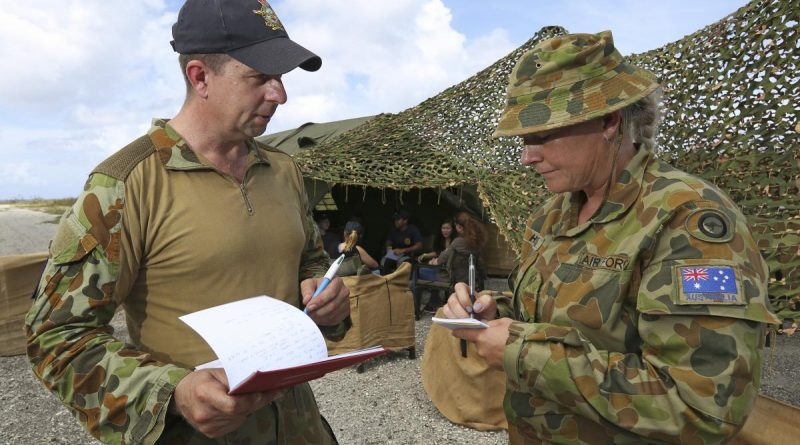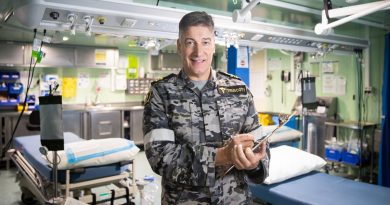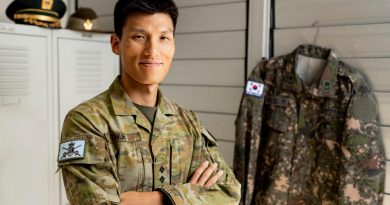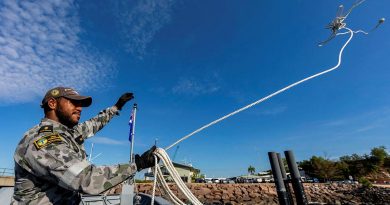Gender, peace and security

“Gender perspective” is commonly misunderstood, according to the Director Gender, Peace and Security (GPS) Captain Jennifer Macklin.
CAPTION: Royal Australian Air Force gender adviser Flight Sergeant Dean Maher provides guidance and advice to Sergeant Rebecca Hass on gender in military operations, as part of Exercise Cope North 19, Baker Airfield, Tinian Island. Story by Leading Seaman Kylie Jagiello. Photo by Sergeant Kirk Peacock.
“Armed conflicts and natural disasters are inherently gendered crises. While men, women, boys and girls may share similar experiences, they are exposed to different risks and threats, and demonstrate different vulnerabilities and needs,” she said.
“Our response must demonstrate a sound understanding of these differences to be effective – that is, we must have a gender perspective.”
Operating as a directorate in the Joint Support Services Division since November 2020, GPS is responsible for Defence’s contribution to Australia’s whole-of-government National Action Plan on Women, Peace and Security (WPS) 2021-2031.
The plan has four outcomes to be achieved over the next decade: to support female participation and needs in peace processes; reduce sexual and gender-based violence; support resilience, crisis, security, law and justice efforts; and demonstrate leadership and accountability for the WPS agenda.
Captain Macklin said Defence recognised that women provided a unique perspective in the planning and conduct of military operations, as well as an important contribution to conflict prevention, resolution and peace-building efforts.
“It is critical to understand the human terrain in an area of operations; what the gender relations are, where gender inequality exists and how it will manifest through social and cultural norms,” she said.
“Understanding the pattern of life and its inherent vulnerabilities must shape our response.”
To operationalise the United Nations Security Council Resolution (UNSCR) 1325 on Women, Peace and Security, and deliver on Australia’s National Action Plan, Defence developed the GPS Mandate (2020-2030).
The mandate articulates Defence’s contribution to the National Action Plan along six lines of effort: policy and doctrine; education and training; personnel; mission readiness and effectiveness; international engagement; and governance and reporting.
With a commitment to social justice and a long involvement in community and advocacy groups before joining the Navy, Captain Macklin brings passion to her role.
“I have worked for a number of organisations advocating for equality and inclusion and seen first-hand how ignorance, prejudice and discrimination can lead to violence,” she said.
“Having a commitment to inclusion, respect for human rights and a pluralistic mindset is at the heart of a healthy, resilient society.”
A priority for the GPS directorate is education and training. Captain Macklin said she would like to see more people participate in the Gender Focal Point workshop.
The course provides foundational skills and knowledge for the application of gender perspective in any domain.
“Gender focal points play a crucial role in the mainstreaming of a gender perspective in Defence. Whether you are in an ADF or APS role, you can apply a gender perspective in your work,” Captain Macklin said.
“By simply asking ‘What are the gender considerations here? How does this decision or plan impact men, women, boys and girls differently?’ you can have a significant impact on policy, planning and engagement outcomes.”
.
.

.
.





